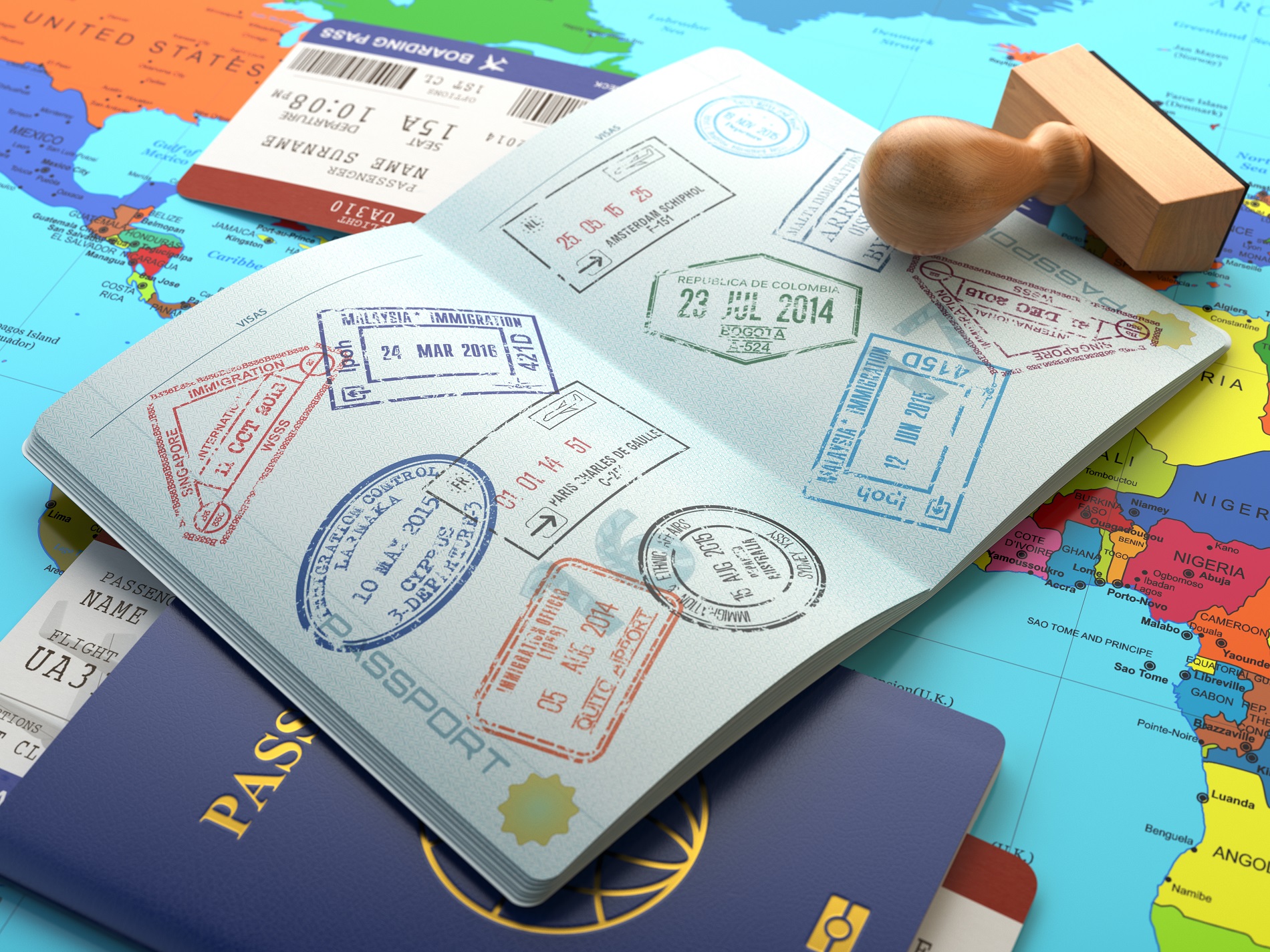Visa worldwide
The time has come! You have received an admission to a non-European university and are almost bursting with anticipation – and rightly so! However, before the adventure abroad starts, it is very important to take care of the last application steps, with the application for a visa being at the top of the list. While German students in Europe do not need a visa, the regulations outside the EU are usually different. A student visa is a basic requirement to study and live locally as a foreign student in many countries outside the EU. These include countries such as:
- USA
- Canada
- Australia
- China
- Thailand
Whether you are studying abroad for a whole semester or a full degree at your dream university outside the EU – you can look forward to an unforgettable time, which with the right visa in your luggage, nothing will stand in your way! In the following we have summarized all basic information about the visa application process. You will receive further information about the visa during your application process.
What are the requirements for the visa application?
The entry requirements for students vary depending on the destination country. When applying for a visa, you must present proof of admission to study, often in the form of an official letter of invitation, which you will receive from the university abroad. In addition to the invitation, the most important documents for the approval of a long-term stay include the completed visa application, a valid passport, and a recent photograph. In addition, some countries require proof of sufficient financial resources, for example, to pay tuition fees.
USA: F1 visa / J1 visa
In order to study in the USA, international students need a so-called Student Visa; the American university decides whether you receive an F1 or a J1 visa. The Student Visa entitles its holder to study in the USA only, but it is not possible to work or do a paid internship while studying. Exception: If you enter the U.S. with a J1 visa, you are allowed to do an internship in the country after your semester abroad that is the same length as your semester abroad and is related to your studies.
The official acceptance letter for a study placement in the USA, which is required to apply for the visa, is sent to students in the form of an I-20 / DS-2019. The visa application can only be submitted after receipt of this document, but no earlier than 120 days before the start of studies in the USA. The student visa application process is divided into two parts: Online application and interview at a U.S. Embassy or Consulate (in Berlin, Frankfurt or Munich). After you have successfully applied online, you can make an appointment through the website of the visa service provider “CGI Federal” (https://ustraveldocs.com/de/index.html?firstTime=No). The current waiting times for your visa interview appointment can be found here: (https://travel.state.gov/content/travel/en/us-visas/visa-information-resources/wait-times.html).
Canada
Fortunately, studying abroad in Canada does not require a lengthy elaborate visa process. Students staying in Canada for no longer than six months can enter Canada without a student visa. So, if you only want to study at a university in Canada for one semester and therefore stay in the country for less than 6 months, you do not need a visa for your stay, but only an eTA (electronic travel authorization). It is important that your passport is valid for the entire period of your stay in Canada.
If you want to study in Canada for two semesters or longer than 6 months, you will need a study permit in any case. You should apply for this before you leave for Canada, as this could be very complicated in Canada itself.

How long can I stay abroad as a student with a visa?
The period of validity of the student visa always depends on the period of the planned study abroad (for example, one or more semesters). The decisive factor is always the period stated in your letter of invitation. In addition, students usually have a so-called “grace period” during which they can stay in the respective country before or after their studies (for example in the USA). The validity period of a student visa must be clarified in each individual case.
Australia
A student visa is also suitable for studying in Australia. In contrast to the USA, the student visa in Australia is also suitable if you want to work in the country while studying abroad. You can work part-time during the lecture period and full-time during the non-lecture period. For the time after your studies, there are possible follow-up visas, such as a tourist visa, to extend your stay. Detailed information on the procedure and application for a tourist visa can be found at the Department of Home Affairs.
For studying in Australia, the student visa can only be applied for after the study placement has been accepted and the tuition fees have been paid. After paying the tuition fees, you will receive the so-called Confirmation of Enrolment (CoE) from the Australian university, on which a number is noted that is relevant for the visa application. The student visa can be applied for a maximum of four months (124 days) before the start of studies in Australia. Ideally, the visa should be applied for at least four to six weeks before your planned departure. This way you will have enough time to answer any questions the immigration authorities may have. Applications can only be made online and through the Department of Home Affairs.
Great Britain
EU citizens need a student visa to study abroad in the UK since the end of the Brexit transition period (01.01.2021). The type of visa depends on the type and duration of study as well as age. Here you can check if and which visa you need: https://www.gov.uk/study-uk-student-visa
